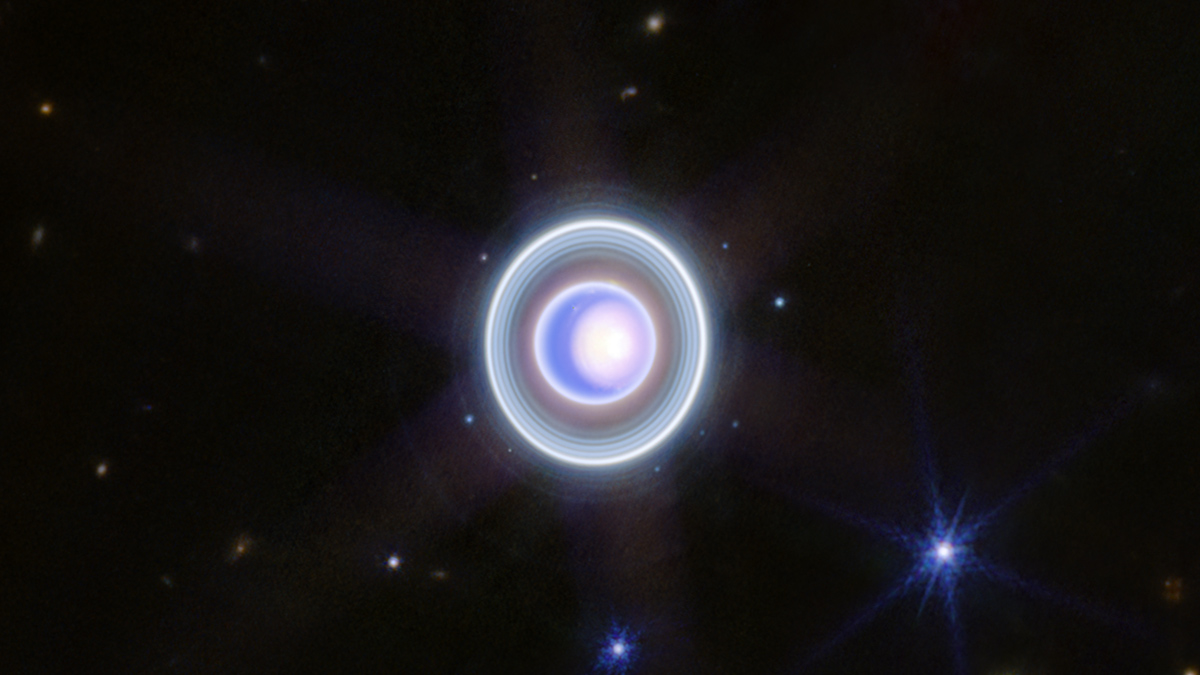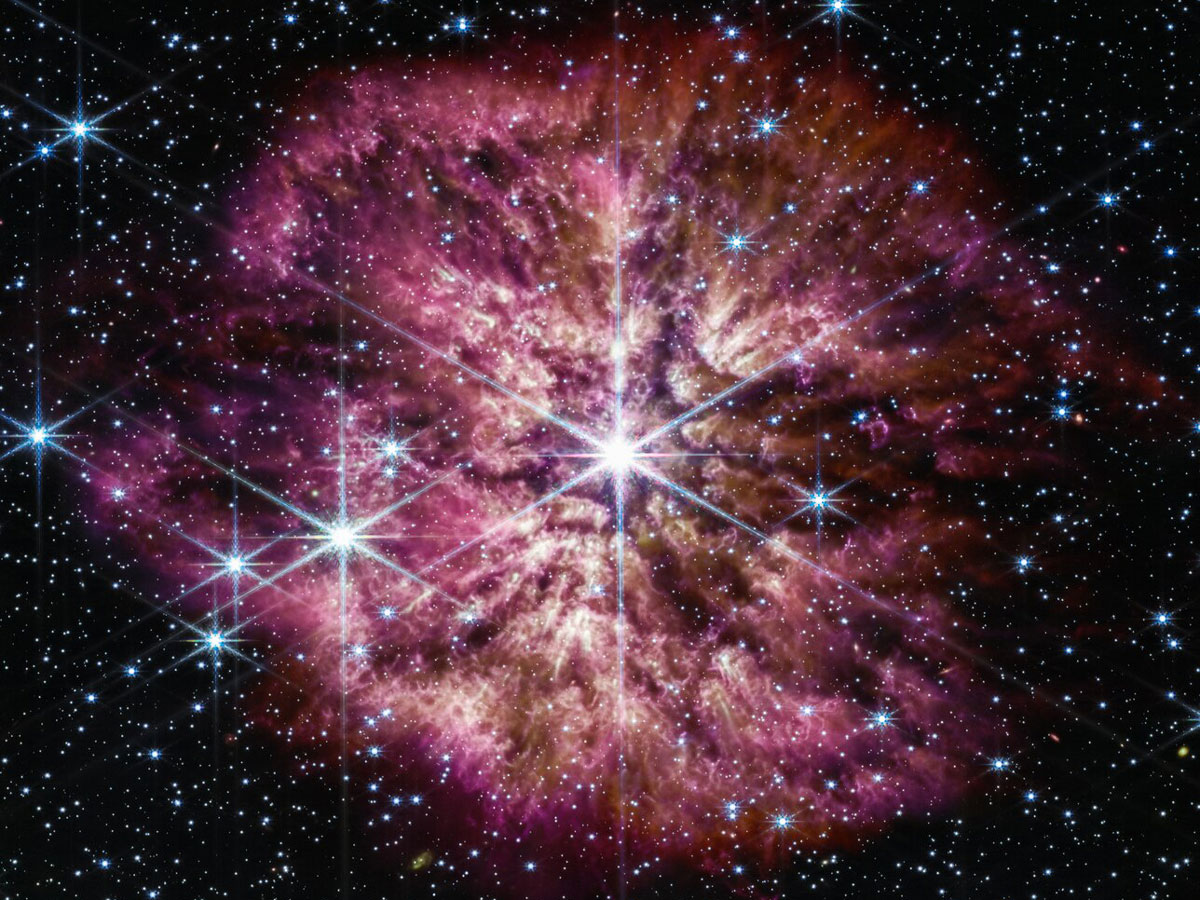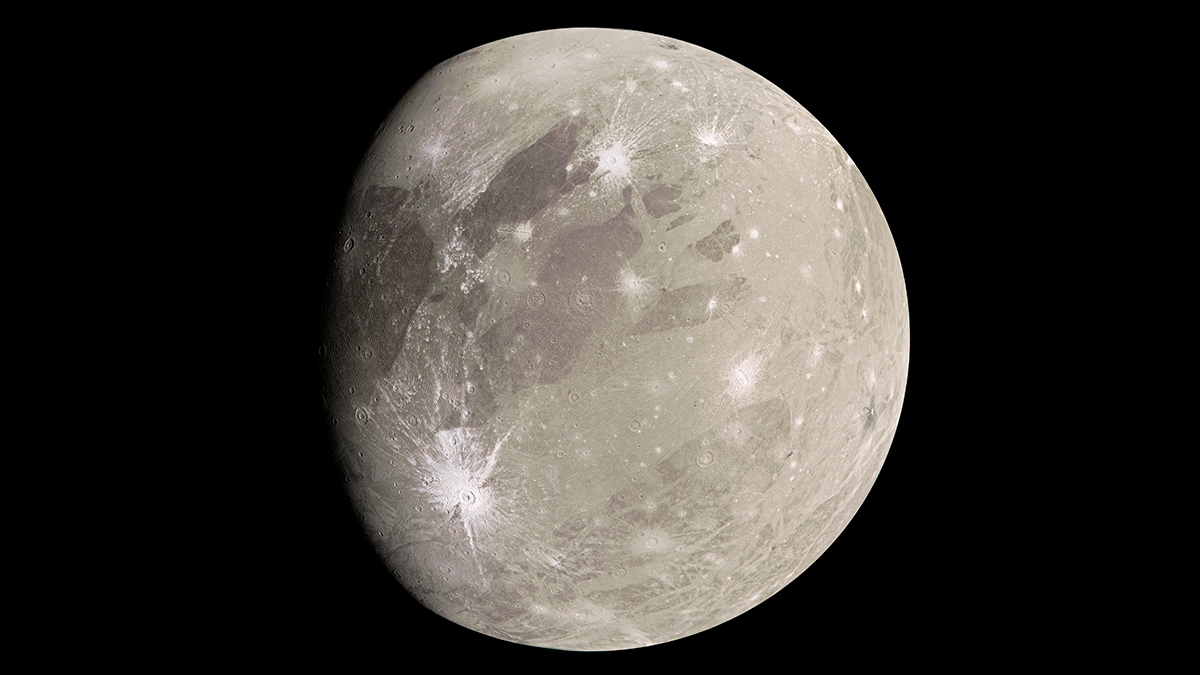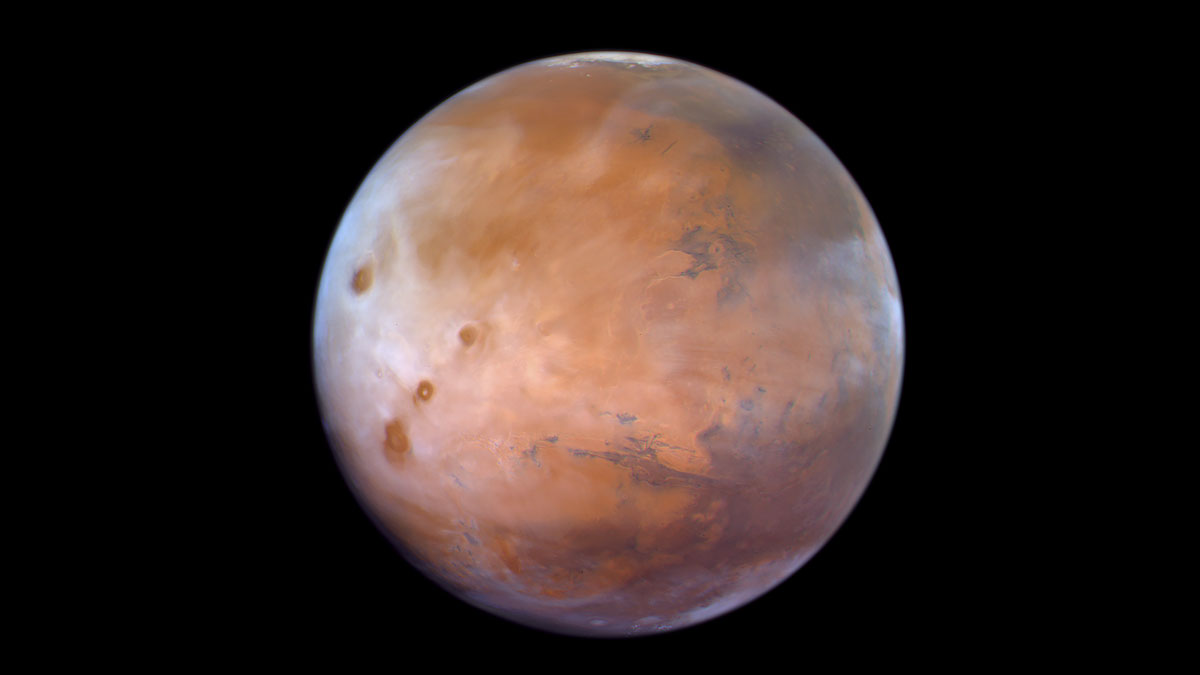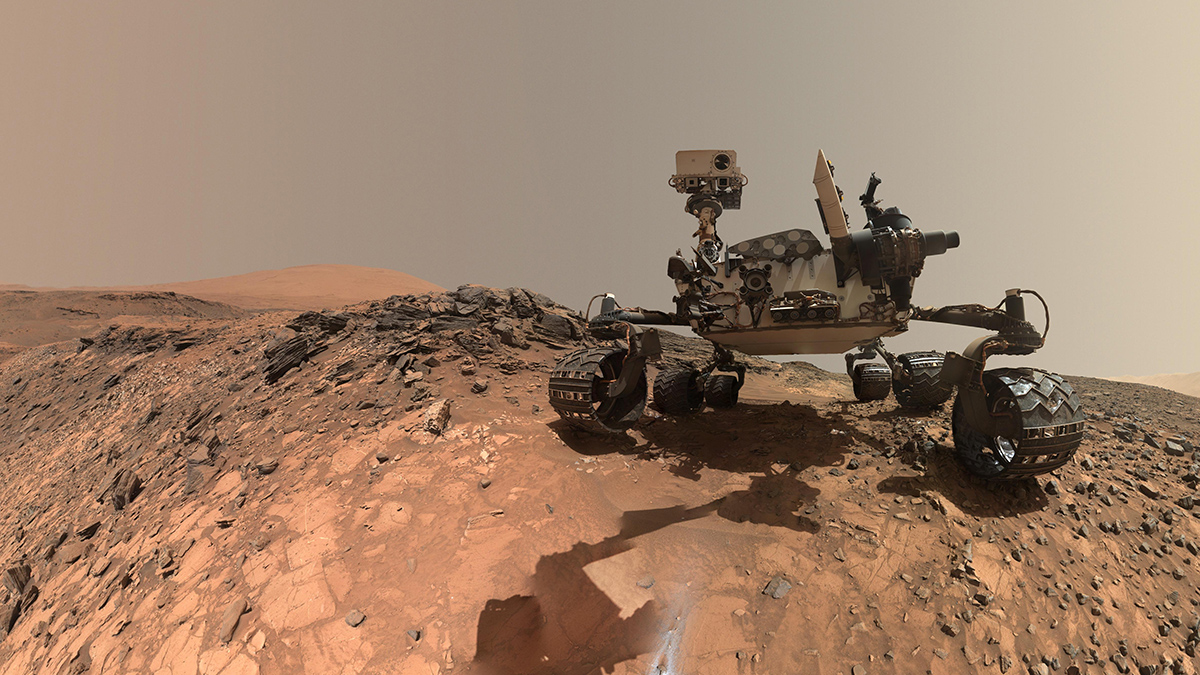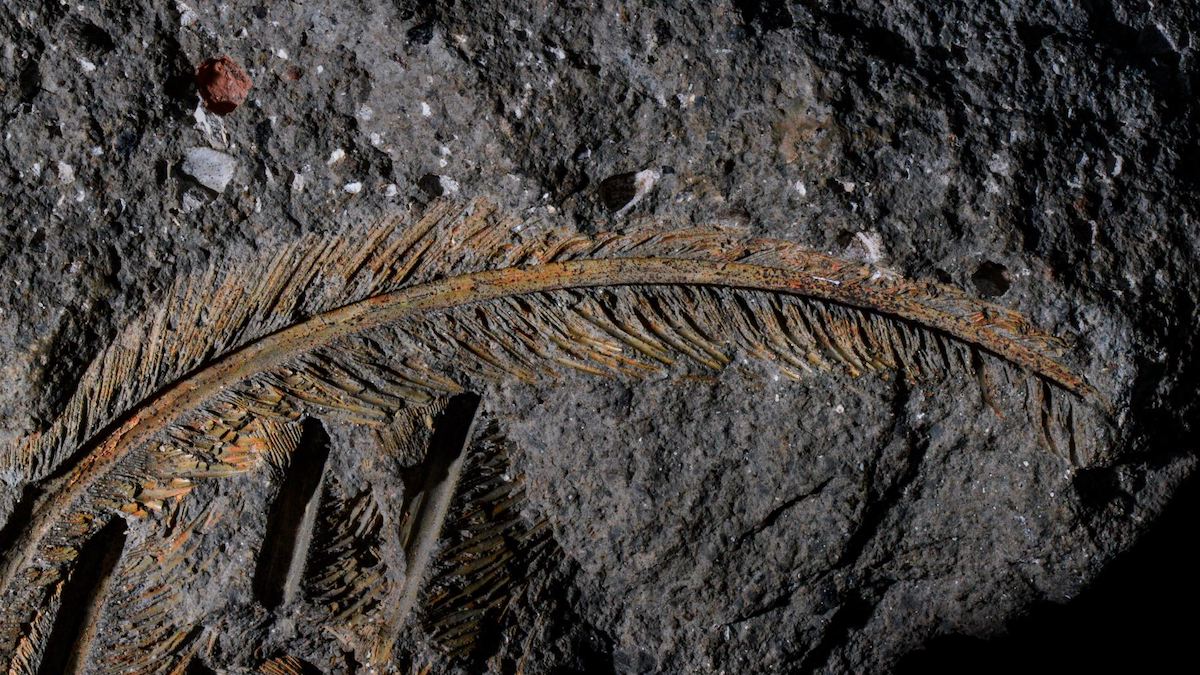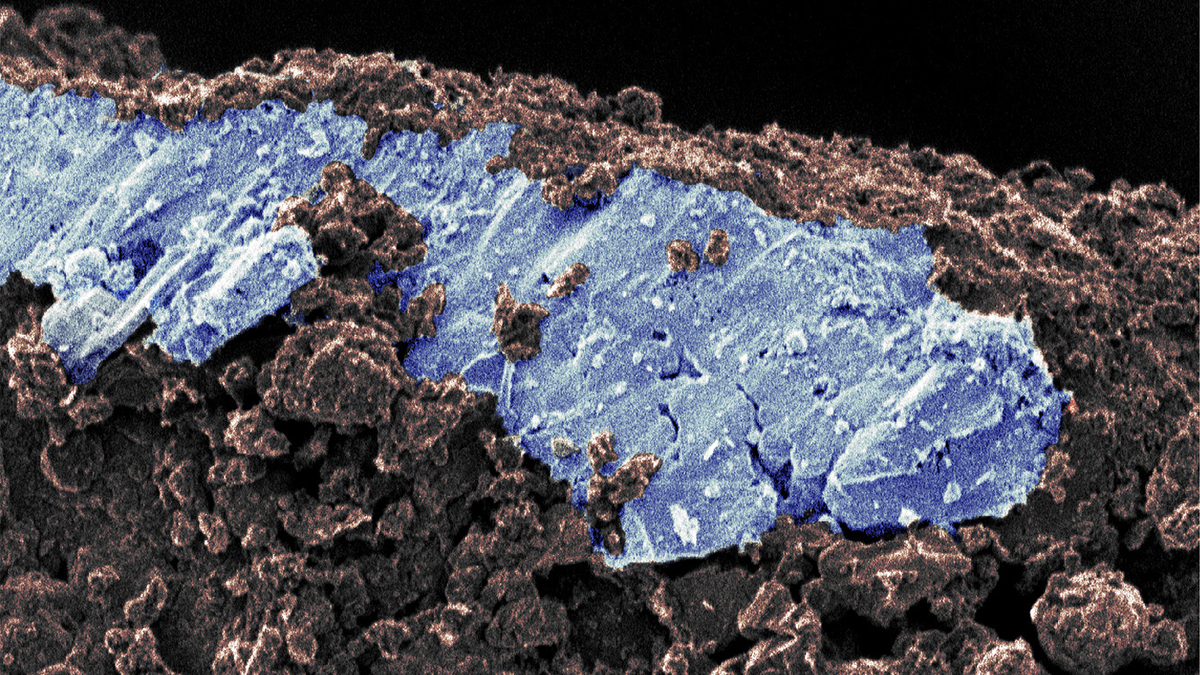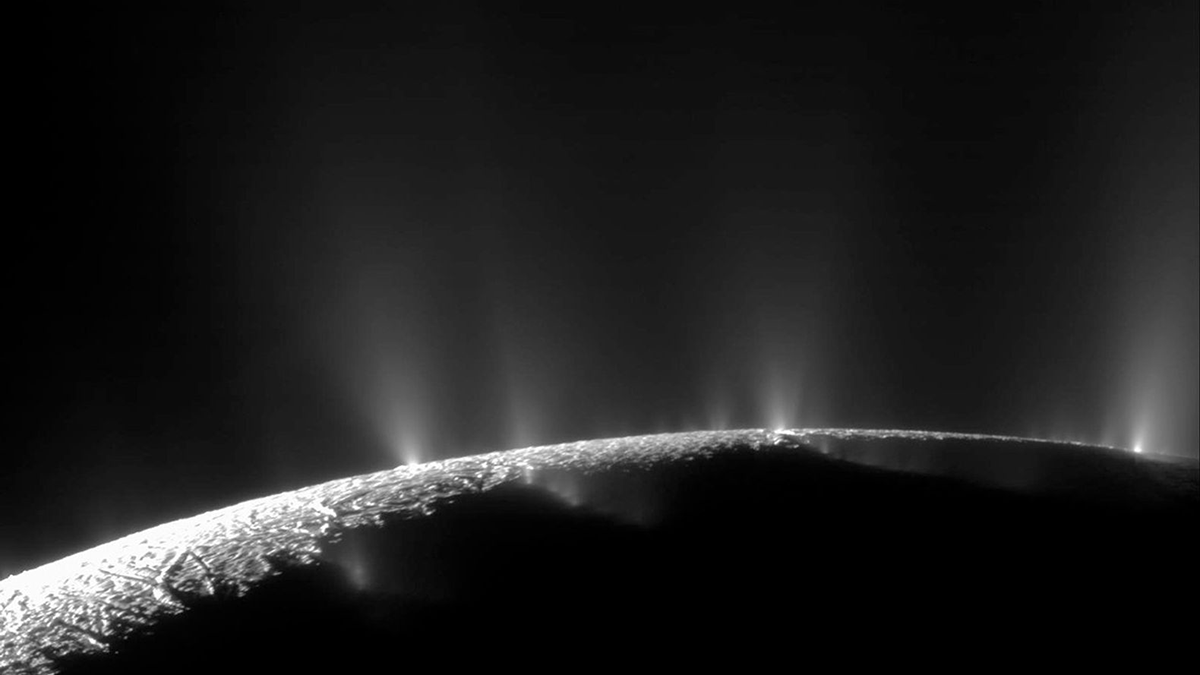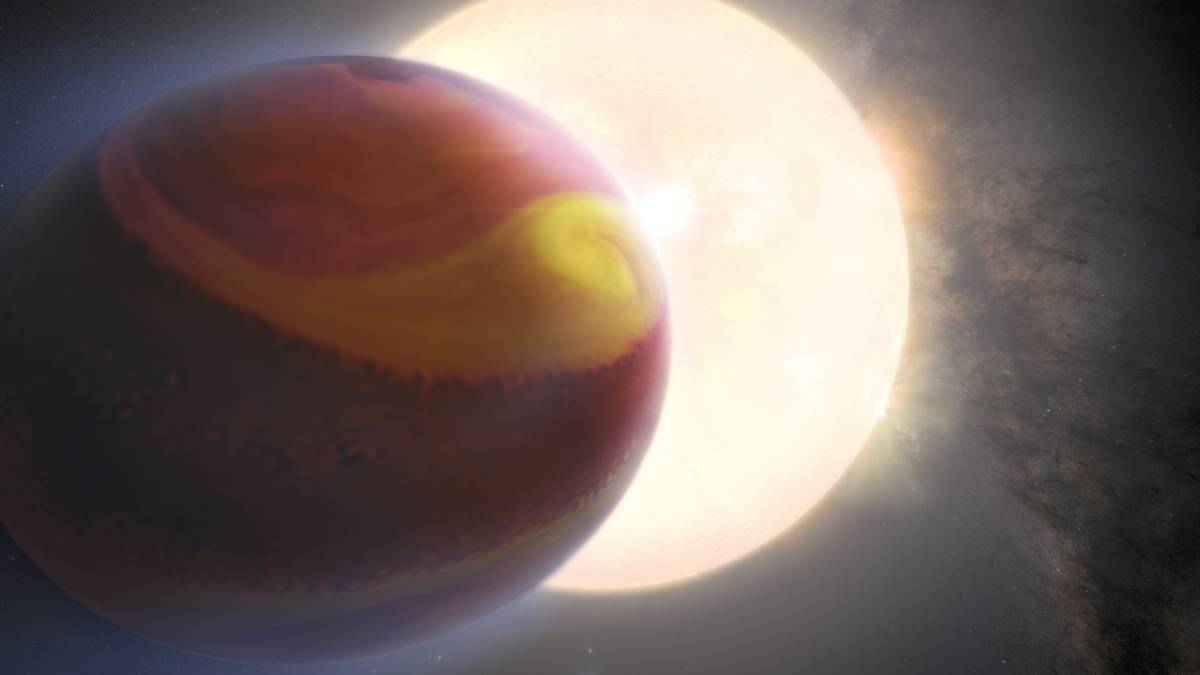…Except for Mab, which is even weirder than expected.
spectroscopy
This Star Stripped Off Its Layers Long Before Exploding
A star 2 billion light-years away apparently shed most of its outer layers before exploding, providing new insights into stellar structure—and new mysteries for astronomers to solve.
Infrared Instruments Could Spot Exotic Ice on Other Worlds
Phases of ice that exist naturally only on frozen moons could be detected using infrared spectroscopy, according to new laboratory experiments.
First Complete Picture of Nighttime Clouds on Mars
Data captured by the Emirates Mars Mission reveal that clouds are typically thicker during Martian nighttime than daytime.
Proposed Experiment Could Clarify Origin of Martian Methane
Curiosity’s detection of the gas, if atmospheric, could be an indicator of life on the Red Planet. But skeptics say further work is needed to rule out the rover itself as the source of the methane.
A 30,000-Year-Old Feather Is a First-of-Its-Kind Fossil
A new analysis of a fossil found in 1889 has unveiled the presence of zeolites—and an entirely new mineralization method.
Asteroid Samples Suggest a Solar System of Ancient, Salty Incubators
The discovery of salty mineral evaporites on Ryugu indicates that watery environments may have been widespread in the early solar system.
Using Algorithms to Help Find Life on Icy Ocean Worlds
Scientists could use machine learning to analyze atmospheric samples in order to help identify microbes on frozen moons. They’re testing the concept using bottles of brine and smelly bacteria.
First 3D Map of Exoplanet Weather Reveals Superfast Jet
New observations also answer a long-standing question about where this ultrahot planet keeps its titanium.
Tropical Congestus Clouds Explained by Water Vapor Spectroscopy
A new study demonstrates how the abundance of congestus clouds in the tropics can be explained by the water molecule’s discerning appetite for infrared radiation.

